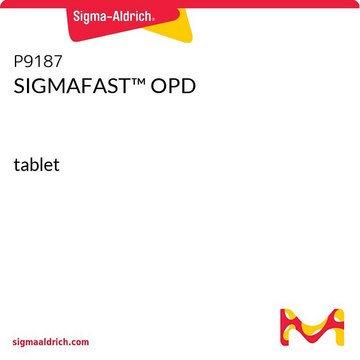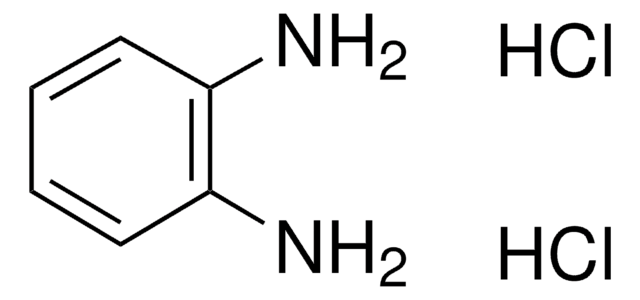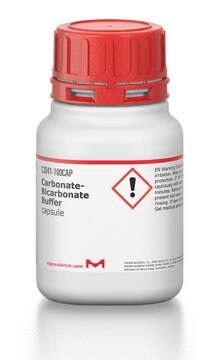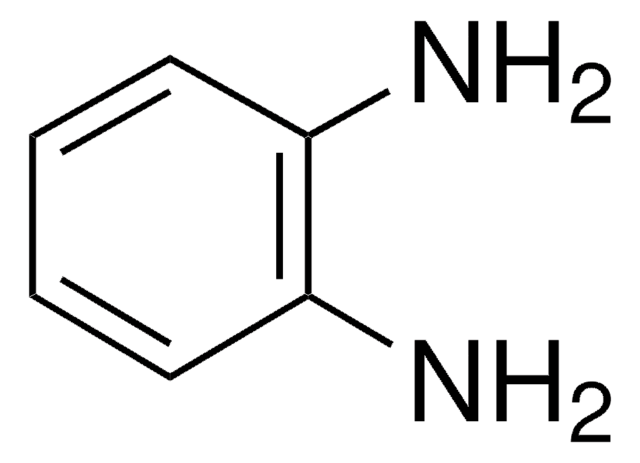P3804
o-Phenylenediamine dihydrochloride
chromogenic, tablet
Synonym(s):
1,2-Phenylenediamine tablet, OPD, OPD Tablet
About This Item
Recommended Products
product name
o-Phenylenediamine dihydrochloride, tablet, 5 mg substrate per tablet
form
tablet
mp
258 °C (dec.) (lit.)
solubility
water: 1 tablet/10 mL, clear, colorless
storage temp.
2-8°C
SMILES string
Cl[H].Cl[H].Nc1ccccc1N
InChI
1S/C6H8N2.2ClH/c7-5-3-1-2-4-6(5)8;;/h1-4H,7-8H2;2*1H
InChI key
RIIWUGSYXOBDMC-UHFFFAOYSA-N
Looking for similar products? Visit Product Comparison Guide
Related Categories
General description
Application
- as a chromogenic substrate in indirect enzyme-linked immunosorbent assay (ELISA) to detect immunoglobin G (IgG) antibodies against certain recombinant antigens/proteins
- as a streptavidin-horseradish peroxidase (HRP) substrate sandwich ELISA to analyze human interleukin (IL)-17A, IL-23, and IP-10
- as a substrate in ELISA for determination of IgG-class antibodies to Mycobacterium bovis in serum
Packaging
Reconstitution
Signal Word
Warning
Hazard Statements
Precautionary Statements
Hazard Classifications
Acute Tox. 4 Inhalation - Acute Tox. 4 Oral - Aquatic Acute 1 - Aquatic Chronic 1 - Carc. 2 - Eye Irrit. 2 - Muta. 2 - Skin Sens. 1
Storage Class Code
11 - Combustible Solids
WGK
WGK 3
Certificates of Analysis (COA)
Search for Certificates of Analysis (COA) by entering the products Lot/Batch Number. Lot and Batch Numbers can be found on a product’s label following the words ‘Lot’ or ‘Batch’.
Already Own This Product?
Find documentation for the products that you have recently purchased in the Document Library.
Customers Also Viewed
Articles
Nitroblue Tetrazolium (NBT) is used with the alkaline phosphatase substrate 5-Bromo- 4-Chloro-3-Indolyl Phosphate (BCIP) in western blotting and immunohistological staining procedures. These substrate systems produce an insoluble NBT diformazan end product that is blue to purple in color and can be observed visually.
Our team of scientists has experience in all areas of research including Life Science, Material Science, Chemical Synthesis, Chromatography, Analytical and many others.
Contact Technical Service









